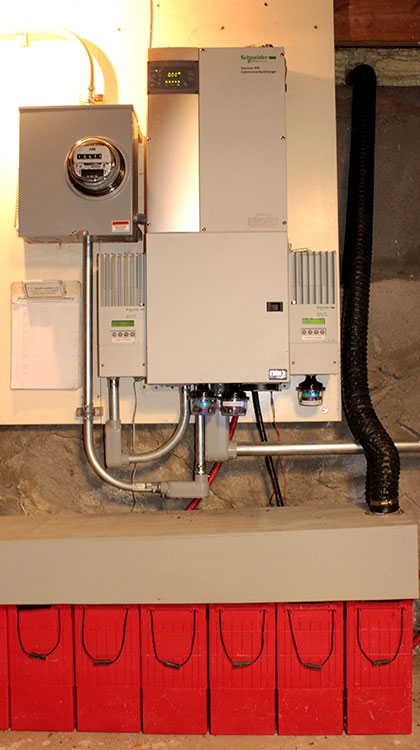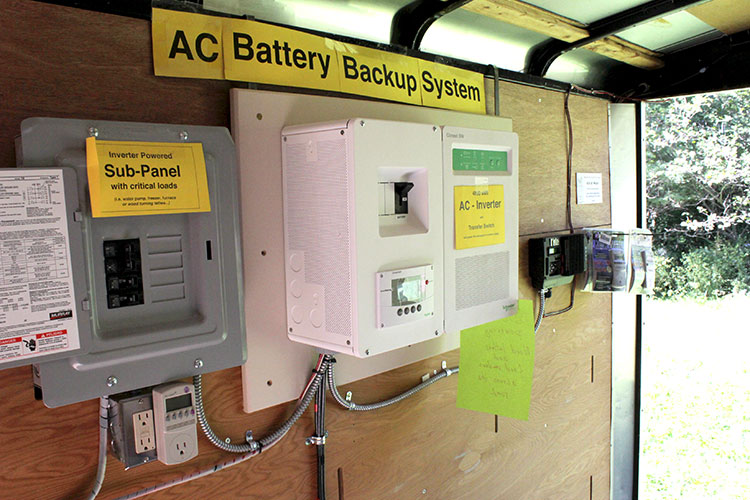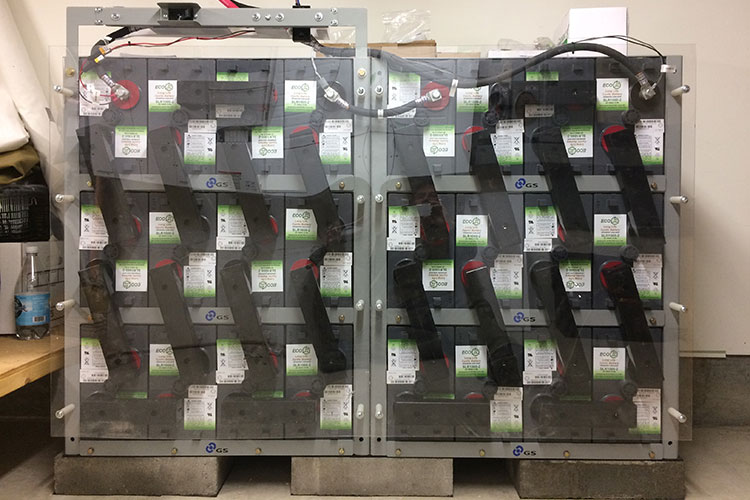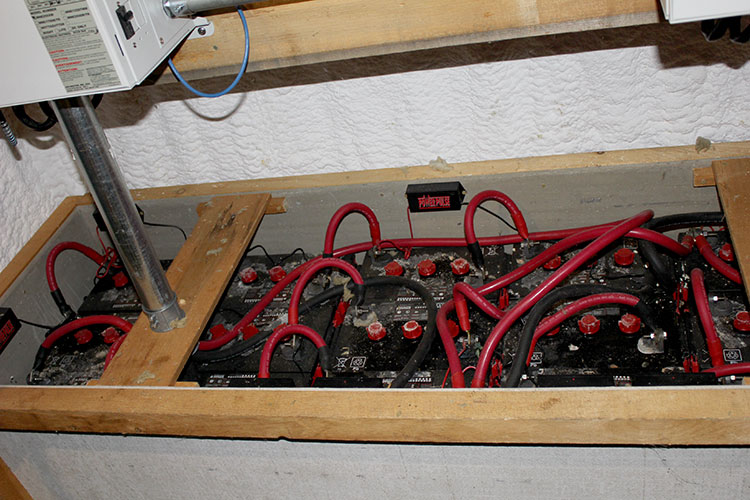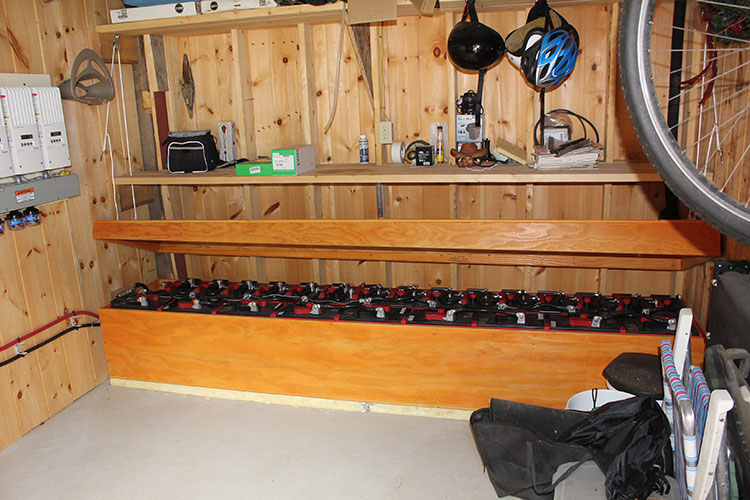Battery-based Systems
Off-grid and Back-up
Energy storage is inherently difficult and expensive. Batteries are required when grid independence is desired for grid outages or off-grid situations. Such grid-independent systems can be designed and customized for many different situations and for a given budget but usually are not eligible for any financial incentives or programs.
The simplest battery-based systems are DC (direct current) systems that operate on 12 or 24 Volt DC. Appliances that work in cars, RV’s and boats can be run on these systems. This system powers your lighting, refrigeration, pumps, entertainment, mobile phone equipment and computers. They can be used in off-grid cabins and they can be integrated into standard homes as an alternative system to augment regular AC wiring. In this way, during a grid outage, you will still have use of critical appliances.
When an inverter is added to a DC system it becomes an AC (alternating current) system which in principal, will power all the standard house appliances. Typically a back-up system for a home is intended to power only critical appliances during a power outage. For example, a water pump, sump pump, furnace, pellet stove, refrigerator and a few lights and outlets, are usually sufficient. These so called critical "loads" are powered from the inverter by using the power stored in the batteries during a power outage.
However when a grid outage lasts for days, the batteries will need to be recharged from a different source. The most common source is solar panels. Wind turbine and water turbines are less common but many work in certain situations better than solar. Generators can also be used to recharge the batteries as a last fall back solution.
Although back-up systems like this are far more expensive than cheap generators their advantages are significant. They are:
- Quiet (no noise whatsoever)
- Odorless (no gasoline smell)
- Independent from a external fuel source if solar panels are part of the system
- Always on—power is always available 24/7 not just when a generator is running
- Automatically start and stop (system will start within milliseconds of an outage and go back into standby mode when the grid is back on and stable for several minutes)
An existing or new grid-tied PV system will be expanded to become a power source to refill batteries and power your critical "load" during an outage. In this way your PV system will provide power to your own home during an extended power outage.
*All electrical work is done by licensed electricians.
